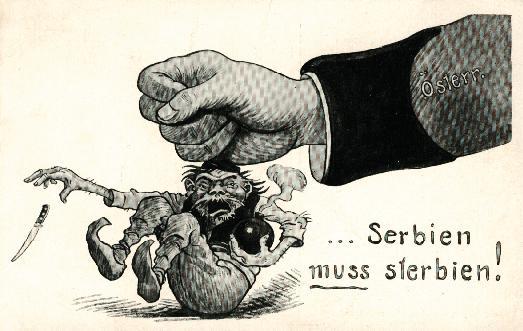|
Frankists (Croatia)
Frankists () were followers of a political ideology that bases positions and lines around the thought of Josip Frank, a Croatian nationalist leader at the end of the 19th century who broke away from the Party of Rights to create his own movement. In the early 1890s, a faction of the Party of Rights was led by Josip Frank. In 1895, they split and founded the Pure Party of Rights, who became known by the term "Frankovci". Frank's program proposed, among other things, a firm cooperation with the Court of Vienna, in order to defend Croatian national interests within the framework of the Habsburg Monarchy, in opposition to the Hungarian ones. The Frankists identified the Serbs as enemies of the Croatian nation, promoting an ideological campaign among the Croats against the Kingdom of Serbia and the Yugoslavists, denouncing any cooperation and feeling of unity between the Croatian and Serb parties at that time. Fundamentally, the Frankists deny that Serbs, as a people, can exist out ... [...More Info...] [...Related Items...] OR: [Wikipedia] [Google] [Baidu] |
Josip Frank
Josip Frank (16 April 1844 – 17 December 1911) was a Croatian lawyer and politician, a noted representative of the Party of Rights in the Croatian Parliament, and a vocal advocate of Croatian national independence in Austria-Hungary. Early life Frank was born into a Croatian Jewish family, but converted to Catholicism at the age of 18 and attended the gymnasium in Osijek. After having finished his law studies at the Vienna University in 1868, he moved to Zagreb in 1872 and worked as an attorney at law. Political career Frank's initial political involvement included a critique of the People's Party (of Josip Juraj Strossmayer), joining the opinion of ban Levin Rauch. When Ivan Mažuranić became Croatian ban in 1873, Frank criticized him because of his relations with the Magyars and the Serbs. In 1877, he founded the newspapers ''Agramer Presse'' and ''Kroatische Post'', which were soon banned by the Austro-Hungarian authorities. In 1880, Frank published a brochure ... [...More Info...] [...Related Items...] OR: [Wikipedia] [Google] [Baidu] |
Kingdom Of Yugoslavia
The Kingdom of Yugoslavia ( sh-Latn-Cyrl, separator=" / ", Kraljevina Jugoslavija, Краљевина Југославија; sl, Kraljevina Jugoslavija) was a state in Southeast Europe, Southeast and Central Europe that existed from 1918 until 1941. From 1918 to 1929, it was officially called the Kingdom of Serbs, Croats and Slovenes ( sh-Latn-Cyrl, separator=" / ", Kraljevina Srba, Hrvata i Slovenaca, Краљевина Срба, Хрвата и Словенаца; sl, Kraljevina Srbov, Hrvatov in Slovencev), but the term "Yugoslavia" (literally "Land of South Slavs") was its colloquial name due to its origins."Kraljevina Jugoslavija! Novi naziv naše države. No, mi smo itak med seboj vedno dejali Jugoslavija, četudi je bilo na vseh uradnih listih Kraljevina Srbov, Hrvatov in Slovencev. In tudi drugi narodi, kakor Nemci in Francozi, so pisali že prej v svojih listih mnogo o Jugoslaviji. 3. oktobra, ko je kralj Aleksander podpisal "Zakon o nazivu in razdelitvi kraljevine n ... [...More Info...] [...Related Items...] OR: [Wikipedia] [Google] [Baidu] |
Anti-Serbian Sentiment
Anti-Serb sentiment or Serbophobia ( sr-Cyrl-Latn, србофобија, srbofobija, separator=" / ") is a generally negative view of Serbs as an ethnic group. Historically it has been a basis for the persecution of ethnic Serbs. A distinctive form of anti-Serb sentiment is anti-Serbian sentiment, which can be defined as a generally negative view of Serbia as a nation-state for Serbs. Another form of anti-Serb sentiment is a generally-negative view of Republika Srpska, the Serb-majority entity in Bosnia and Herzegovina. The best known historical proponent of anti-Serb sentiment was the 19th- and 20th-century Croatian Party of Rights. The most extreme elements of this party became the Ustasha in the Kingdom of Yugoslavia, a Croatian fascist organization that came to power during World War II and instituted racial laws that specifically targeted Serbs, Jews, Roma and dissidents. This culminated in the genocide of Serbs and members of other minority groups that lived in the Ind ... [...More Info...] [...Related Items...] OR: [Wikipedia] [Google] [Baidu] |
Right-wing Ideologies
Right-wing politics describes the range of political ideologies that view certain social orders and hierarchies as inevitable, natural, normal, or desirable, typically supporting this position on the basis of natural law, economics, authority, property or tradition.T. Alexander Smith, Raymond Tatalovich. ''Cultures at war: moral conflicts in western democracies''. Toronto, Canada: Broadview Press, Ltd, 2003. p. 30. "That viewpoint is held by contemporary sociologists, for whom 'right-wing movements' are conceptualized as 'social movements whose stated goals are to maintain structures of order, status, honor, or traditional social differences or values' as compared to left-wing movements which seek 'greater equality or political participation.' In other words, the sociological perspective sees preservationist politics as a right-wing attempt to defend privilege within the ''social hierarchy''."''Left and right: the significance of a political distinction'', Norberto Bobb ... [...More Info...] [...Related Items...] OR: [Wikipedia] [Google] [Baidu] |


